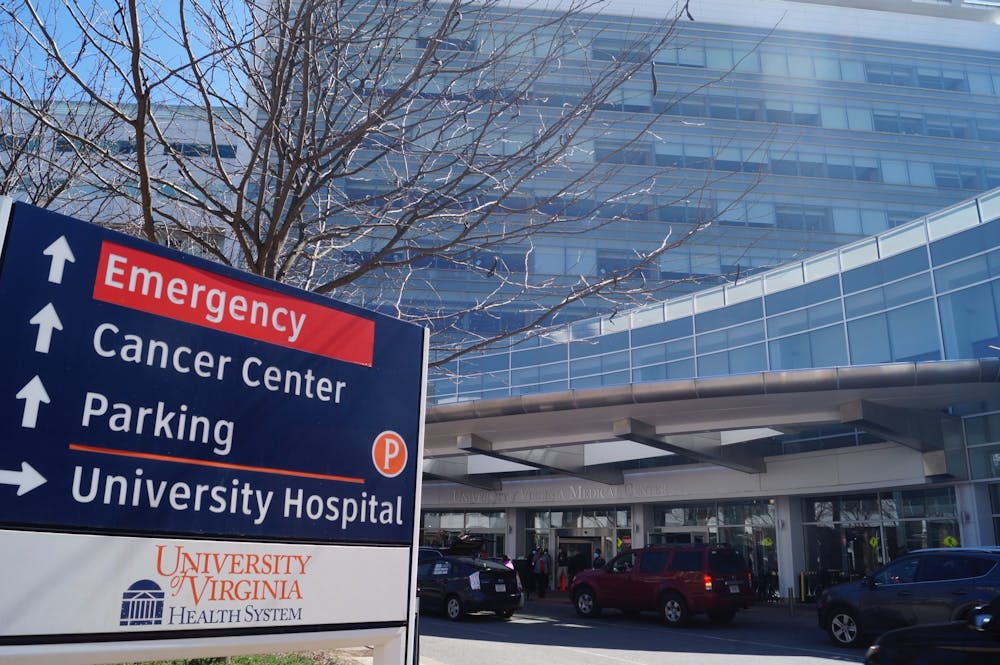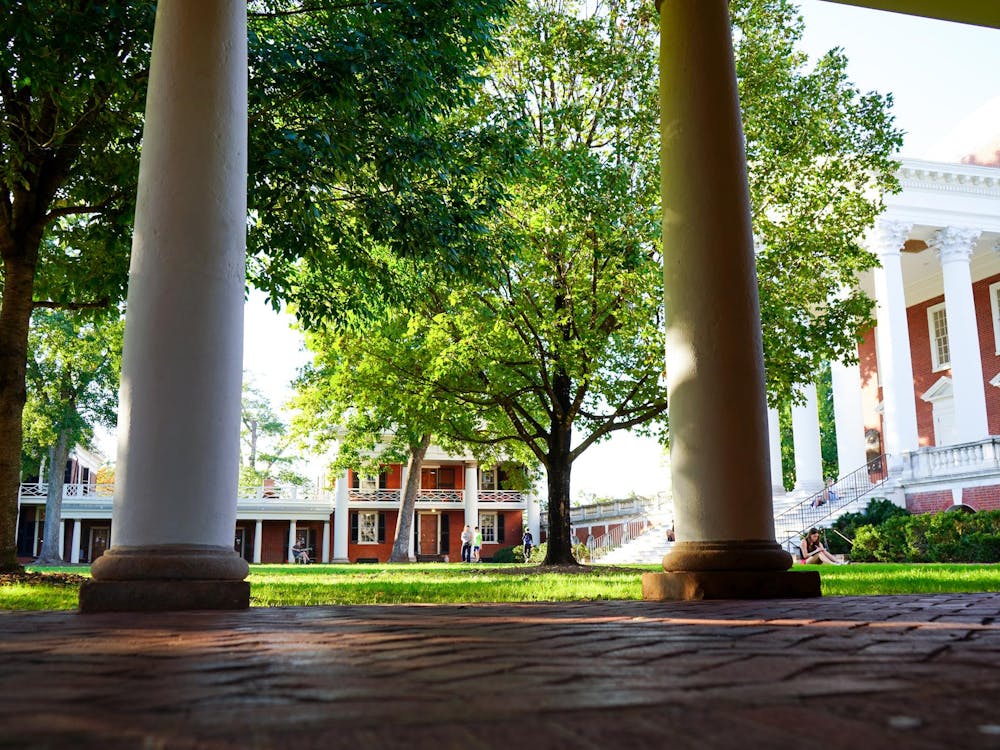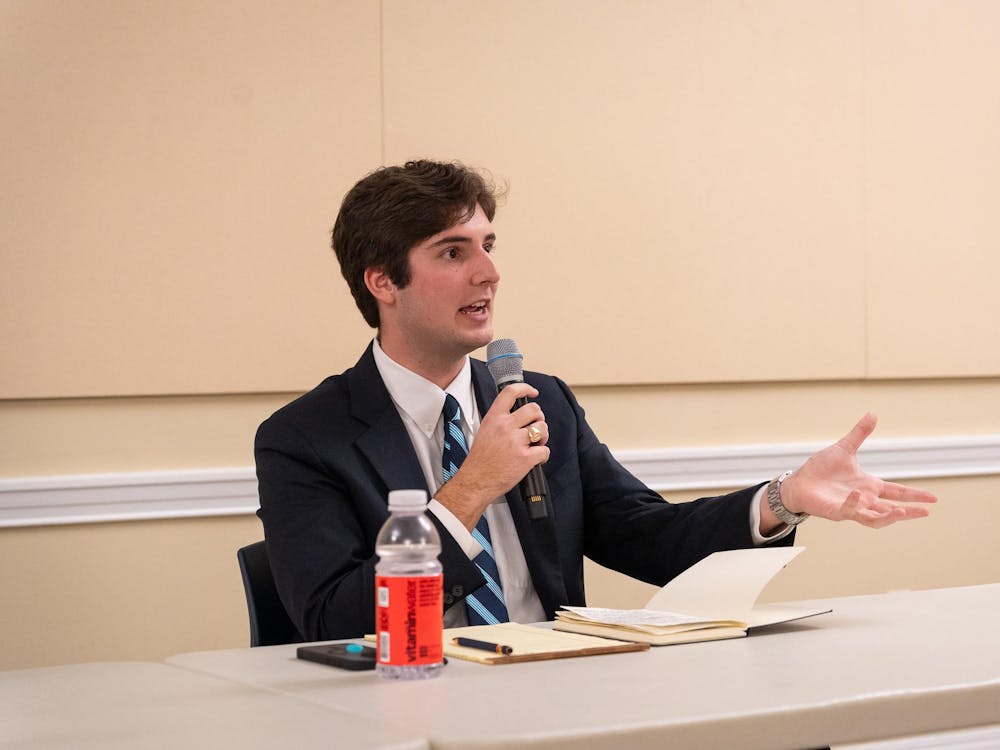Lea en español
The University has recently joined a national effort headed by the National Institutes of Health which aims to better understand infection, viral shedding and transmission of COVID-19 in individuals who have received the vaccine. The study is currently recruiting 600 University students to receive the Moderna vaccine in two different testing groups and participate in follow-up activities in the coming months. The study will use the data collected to predict how well the vaccine can prevent asymptomatic infection and the transmission of the virus to others, which is a current gap in health officials' understanding of COVID-19 vaccines.
Through the high efficacy results determined during the vaccine testing process, health officials and researchers already know that existing vaccines prevent symptomatic infections, hospitalization and deaths in nearly all vaccinated individuals. However, limited research has left officials unclear on the vaccine’s ability to alleviate asymptomatic infection and viral transmission. Smaller studies, such as those in Israel, suggest that vaccines could limit asymptomatic transmission, but a more widespread study is needed to confirm any results.
The potential for asymptomatic spread in vaccinated individuals would mean that those vaccinated could still be carriers for the virus and easily transmit it to others without knowing it. To gain a more widespread understanding of the issue, the NIH is attempting an imperative study to meticulously observe infection presence and transmissibility among college students.
The present study was created by the COVID-19 Prevention Network at the Fred Hutchinson Cancer Research Center and is funded by the federal COVID-19 Response Program and the National Institute of Allergy and Infectious Disease. The study aims to enroll 12,000 college students from more than 20 universities across the country — the University being one of them — and randomly select half of the study’s enrollees to take the vaccine immediately while the other half will receive it four months later.
Eric Houpt, infectious disease and internal medicine specialist at U.Va. Health, is heading the University’s branch of the study alongside Chris Holstege, executive director of U.Va. Student Health and Wellness.
“This is the most ambitious COVID vaccine study the U.S. has performed so far,” Dr. Houpt said in an email to The Cavalier Daily, “It was announced by Dr. Fauci on Friday, and about 20 colleges and 12,000 students are joining the effort.”
Studies on the efficacy of the Moderna COVID-19 mRNA vaccine thus far, have shown that it is 94.1% effective at preventing COVID-19 illness in those receiving two doses and who did not have any evidence of a previous infection. However, there is no concrete evidence regarding the ability of the vaccine to inhibit asymptomatic infection or transmission of the virus.
The study is also attempting to understand the ability of the vaccine to protect against infection from COVID-19 variants, which have been identified in the University community.
The University plans to enroll approximately 600 students in its study and regularly follow up with them upon receiving both doses of the Moderna vaccine. Eligible participants must be 18 to 26 years old, enrolled as University students, planning to reside in Charlottesville during the summer and must have no history of contracting COVID-19 previously.
Participants must also be willing to take part in several monitor steps to collect data on the presence of infection. These include daily nasal-swabbing, daily symptom recording, bi-weekly saliva testing and attendance at four to five study visits meant to further collect data on presence of asymptomatic COVID-19 and viral transmission potential.
Amongst the selected student participants, half will be randomly selected to receive the vaccine immediately — meaning this Saturday — and the other half will receive it after four months, on July 24.
“If a student's primary interest is getting the vaccine right now, then this is not the right study for them because they may not get it right now,” Houpt said. “If a student is interested in participating in an important study to answer these questions and help the country during the pandemic, and is comfortable with the rules, this is the study for you.”
Study participants in the delayed vaccination group are still allowed to receive a vaccine if it becomes available to them through another source. In addition, if a student tests positive for COVID-19, their close contacts will be invited to join the study. Students who volunteer to participate will also be given compensation of up to $590, which will be divided into monthly payments, while any referred contacts can receive anywhere from $100 to $250.
The study is essentially an addition to Phase 3 COVID-19 clinical trials, which tested the ability of vaccines to prevent symptomatic and severe COVID-19 disease in adults. Determining whether vaccinated individuals can still get infected with and transmit the disease has significant implications for unvaccinated populations.
Specifically, this research will shed light on the specific safety measures vaccinated individuals should be taking upon getting vaccinated.
“If the study shows that asymptomatic infections and spread still occurs at a high rate despite vaccination, then we will know that even vaccinated individuals need to keep masking and social distancing,” Houpt said.
Despite this possibility, the study could also affirmatively shows that the vaccine has a high degree of protection against asymptomatic infection and transmission, which would allow public health authorities may be able to tell vaccinated individuals that they can “more or less go back to normal pre-pandemic life.”
Since there continues to be significant inconclusivity on the ability for viral shedding and transmission, the CDC strongly encourages that vaccinated individuals continue to abide by public health measures, including mask-wearing and social-distancing. However, CDC guidelines also say that vaccinated people can gather indoors with other fully vaccinated people without wearing a mask, visit unvaccinated people from one household with masks if they are not considered high risk and do not need to get tested if they come in contact with someone who has tested positive. These suggestions still rest upon the assumption that vaccinated individuals can still be carriers for the infection and contribute to viral transmission in vulnerable populations, but results from the NIH study may substantially change this guidance.
Students who are eligible and interested in participating in the study should call (434) 924-5362, press option 3 and leave a voicemail. They may also email CoVPN3006study@virginia.edu for any additional non-urgent questions regarding the study.







